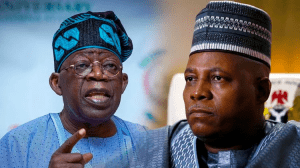India, the second most populated country in the world, has achieved its financial inclusion target of 80 percent in six years, according to a G20 policy document by the World Bank.
This holds lessons for Africa’s most populated country which has a target of increasing its financial inclusion rate to 95 percent in 2024 from 64.1 percent in 2020.
“In just six years, it has achieved a remarkable 80 percent financial inclusion rate—a feat that would have taken nearly five decades without a Digital Public Infrastructure (DPI) approach,” the World Bank said.
It said other nations, including Brazil, Estonia, Peru, and Singapore, have similarly embraced DPI models, yielding tangible results that underscore the efficacy of this approach.
DPI is a digital network that enables countries to safely and efficiently deliver economic opportunities and social services to all residents.
“India stack exemplifies the DPI approach by combining digital ID, interoperable payments, a digital credentials ledger and account aggregation,” the World Bank said.
“Implementation of DPIs such as Aadhaar, along with the Jan Dhan bank accounts and mobile phones, is considered to have played a critical role in moving ownership of transaction accounts from approximately one-fourth of adults in 2008 to over 80 percent now,” it added.
According to the international organisation, India built one of the world’s largest digital Government-to-People architectures leveraging DPI.

“This approach has supported transfers amounting to about $361 billion directly to beneficiaries from 53 central ministries through 312 key schemes. As of March 2022, this resulted in a total savings of $33 billion, equivalent to nearly 1.14 percent of GDP.”
More than 500 million Indians have opened accounts under the Pradhan Mantri Jan Dhan Yojana (PMJDY), since its inception nine years ago.
“PMJDY has proved to be a catalyst for one of the biggest financial inclusion programmes for the country, with 66.8 percent of accounts opened in rural and semi-urban, and 33.2 percent of accounts opened in urban communities under the scheme,” Vivek Joshi, secretary-financial services, Ministry of Finance, said in August.
Financial inclusion is the delivery of financial services at affordable costs to disadvantaged and low-income segments of society. Nigeria’s financial inclusion rate grew to 64.1 percent in 2020 from 32.5 percent in 2012, according to Enhancing Financial Innovation and Access.
The 2020 figure is below the Central Bank of Nigeria (CBN)’s 80 percent financial inclusion target for 2020. Last year, the CBN set a financial inclusion target of 95 percent by 2024.
It aims to achieve this target using five strategic policies. The policies include the revised National Financial Inclusion Strategy (3.0), the Strategy for Leveraging Agent Networks for Women’s Financial Inclusion and the National Fintech Strategy, and the Payment System Vision (PSV) 2025.
Others are the Nigeria Financial Services Maps, the CBN Regulatory Sandbox and a Fintech Bridge between the Central Bank of Nigeria and the Central Bank of Egypt.
From 2012 to date, over 59 policies and initiatives have been implemented by stakeholders to achieve the objective of financial inclusion; these policies and initiatives cut across the banking sector, the insurance sector, the capital market, the pension sector and institutions responsible for infrastructural development for financial inclusion, said Godwin Emefiele, past governor of CBN.
“These five important financial inclusion artifacts will provide direction for financial inclusion in the country in the coming years,” he said.
The World Bank document highlighted that the total value of Unified Payment Interface (UPI) last financial year was nearly 50 percent of India‘s nominal gross domestic product, “Bank cost for onboarding customers in India decreased from $23 to $0.1 with the use of DPI. As of March 2022, India did total savings of $33 billion equivalent to nearly 1.14 percent of its GDP, due to direct benefit transfer.”



















